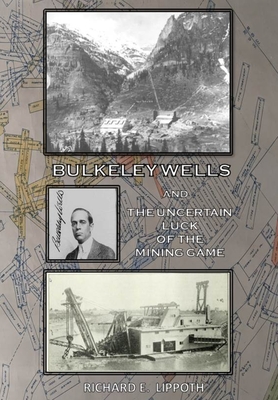Bulkeley Wells And The Uncertain Luck Of The Mining Game

Bulkeley Wells And The Uncertain Luck Of The Mining Game
The economics of hardrock mining evolved dramatically during the first decades of the twentieth century as demand for metals surged while mineral deposit grades decreased. The era contains many examples of how the adoption of new technology offset changes in the quality of available mineral resources and the growing number of restrictions placed by society on how the resources could be extracted. The mining industry put the predictions of increasing resource scarcity to rest by finding ways to produce more metals at a lower cost. This did not mean that most mines made a profit; geologic luck and fortunate metal price timing often contributed more to a successful outcome than technological innovation and capable management.
The career of Bulkeley Wells illustrates nearly all of the changes and challenges faced by the mining business during this time period. While his name is not widely known today, Wells gained nationwide notoriety for his leadership in opposing violent labor strikes in the mining camps of Colorado between 1901 and 1904. He subsequently managed the development of several large mining and electric power projects in Colorado, California and Nevada, as well as the formation of a company to integrate the production of uranium ore with extraction of the contained radium for use in cancer treatment. However, nearly all of Wells' ventures failed, for a variety of reasons. Although Buck Wells had no political aspirations, as a leader in the mining business he was at the forefront in lobbying the government to support a vibrant domestic mining industry, particularly gold and silver mining. Wells was convinced that a substantial reserve of precious metals was essential for domestic and international financial stability.
The author has based the account of Wells' life on extensive research undertaken at document archives throughout the United States; reviewing preserved letters by Wells and his contemporaries, period newspapers and periodicals, mining records and the records of labor organizations. Many myths that have coalesced around Bulkeley Wells were investigated and the existing facts presented and analyzed objectively.
PRP: 235.60 Lei
Acesta este Prețul Recomandat de Producător. Prețul de vânzare al produsului este afișat mai jos.
188.48Lei
188.48Lei
235.60 LeiLivrare in 2-4 saptamani
Descrierea produsului
The economics of hardrock mining evolved dramatically during the first decades of the twentieth century as demand for metals surged while mineral deposit grades decreased. The era contains many examples of how the adoption of new technology offset changes in the quality of available mineral resources and the growing number of restrictions placed by society on how the resources could be extracted. The mining industry put the predictions of increasing resource scarcity to rest by finding ways to produce more metals at a lower cost. This did not mean that most mines made a profit; geologic luck and fortunate metal price timing often contributed more to a successful outcome than technological innovation and capable management.
The career of Bulkeley Wells illustrates nearly all of the changes and challenges faced by the mining business during this time period. While his name is not widely known today, Wells gained nationwide notoriety for his leadership in opposing violent labor strikes in the mining camps of Colorado between 1901 and 1904. He subsequently managed the development of several large mining and electric power projects in Colorado, California and Nevada, as well as the formation of a company to integrate the production of uranium ore with extraction of the contained radium for use in cancer treatment. However, nearly all of Wells' ventures failed, for a variety of reasons. Although Buck Wells had no political aspirations, as a leader in the mining business he was at the forefront in lobbying the government to support a vibrant domestic mining industry, particularly gold and silver mining. Wells was convinced that a substantial reserve of precious metals was essential for domestic and international financial stability.
The author has based the account of Wells' life on extensive research undertaken at document archives throughout the United States; reviewing preserved letters by Wells and his contemporaries, period newspapers and periodicals, mining records and the records of labor organizations. Many myths that have coalesced around Bulkeley Wells were investigated and the existing facts presented and analyzed objectively.
Detaliile produsului










